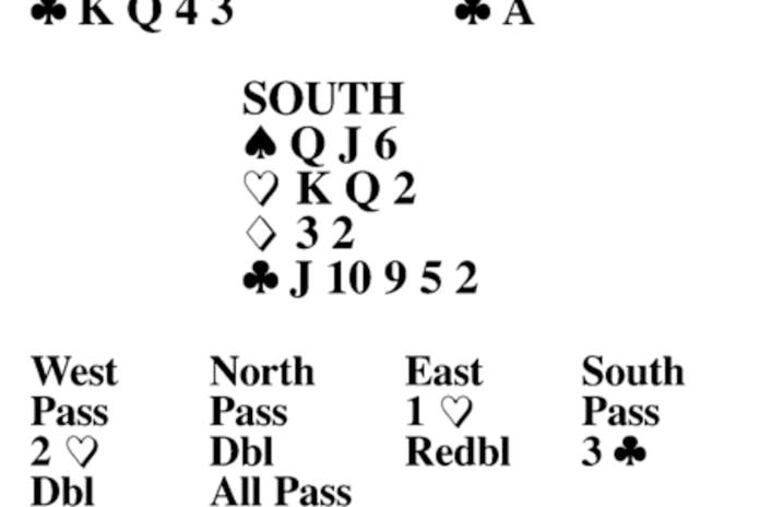Bridge by Frank Stewart
Recently in the ACBL's magazine, the noted theorist Larry Cohen and I debated the wisdom of "pre-balancing." Most players are familiar with "balancing": backing into the auction when the opponents stop low. "Pre-balancing," which requires fortitude and judgment, is entering when you think the opponents are about to stop but you fear your partner may not have a suitable hand to balance. Cohen supported the idea. I expressed doubts.

Recently in the ACBL's magazine, the noted theorist Larry Cohen and I debated the wisdom of "pre-balancing."
Most players are familiar with "balancing": backing into the auction when the opponents stop low. "Pre-balancing," which requires fortitude and judgment, is entering when you think the opponents are about to stop but you fear your partner may not have a suitable hand to balance. Cohen supported the idea. I expressed doubts.
In a Senior Teams match at the American Contract Bridge League Fall Championships, Gupta vs. Kasle, both teams were chock full of professionals. Tied at the end of regulation, the match required an eight-deal playoff, and today's deal arose with Gupta ahead by 10 IMPs.
At one table, North-South for Gupta were Eric Rodwell-Jeff Meckstroth, one of the world's most aggressive and successful pairs. When East-West bid and raised hearts, Rodwell came in with a pre-balancing double. It was a bad time for that action. East redoubled, and when South took out to three clubs, West doubled. The defense won seven tricks, plus 800.
That result gave Kasle a chance for a big swing and the lead. But in the replay, where North passed over two hearts, East jumped to four hearts.
A diamond lead would have sunk the contract, but South led the jack of clubs. East took the ace, cashed the ace of trumps and A-K of spades, ruffed a spade and threw diamonds on the K-Q of clubs. He made four, plus 620, so instead of losing 14 IMPs, Gupta lost only five and held on to win the match.